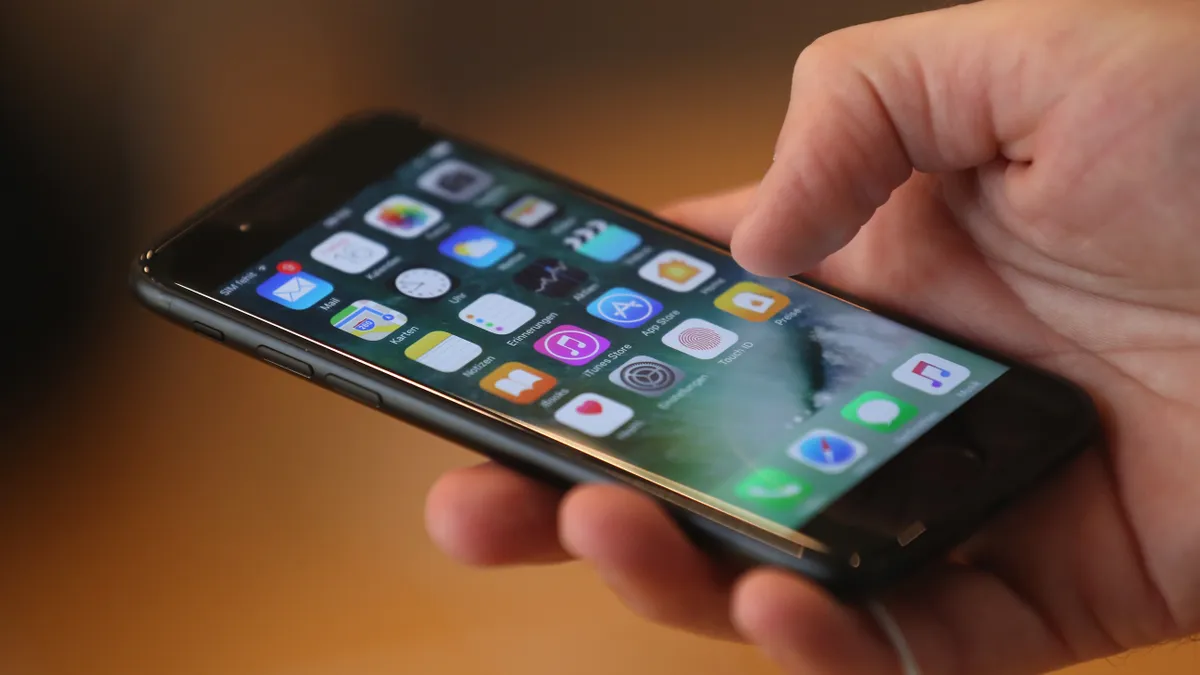Dive Brief:
-
Tech companies like Apple, Google, Amazon and Facebook have been actively investing in payments and the fintech landscape over the past few years. Despite a raging pandemic, big tech companies have invested $1.2 billion in 14 fintechs, including payments companies, so far this year, running about even with last year, according to a report this month by CB Insights. The investments included outright acquisitions, like Amazon's purchase of omnichannel payments company Perpule for $20 million in March 2021.
-
Google has been the most aggressive investor in the space, with the tech company making 23 fintech investments between 2020 and 2021 year-to-date. Amazon followed with seven investments in the same time period, the report said. Stripe, the online payments processing company, raised $600 million in April 2020 from a range of investors including Google Ventures.
-
The tech behemoths invested $2.1 billion in the fintech industry across 32 deals in 2020, spreading their capital more broadly than they did the prior year with $2.2 billion in investments across 21 companies, the June 17 report said.
Dive Insight:
Major tech companies like Apple, Google, Amazon and Facebook are sinking their teeth deeper into the payments industry by investing in, or acquiring fintechs in the space.
"It's getting increasingly easier for non-banks to offer end-to-end financial services products through embedded finance,” CB Insights Analyst Elif Yayla said in an email. “The goal is to increase the value and convenience they provide to customers and further lock them in their vast product ecosystems.”
Big Tech companies have incredible scale both in customer base and tech capabilities, which makes entering the financial services space a no-brainer for them, Yayla said.
The increased use of embedded financial services and an application programming interface plays to the strengths of big tech companies as opposed to incumbent financial institutions who still run on legacy systems, Yayla said.
“Tech companies have a significant advantage over traditional financial institutions when it comes to lowering costs,” Yayla said. “Peer-to-Peer (P2P) cross border money transfer is one example.”
Apple banks on contactless payments
In one example of the investment-acquisition trend, Apple bought Mobeewave, a Canadian contactless payments company in July 2020 for $100 million to enhance its devices' contactless and digital payment capabilities, the report stated.
Apple acquired Mobeewave with an aim to turn its iPhones into mobile payment terminals. Mobeewave’s technology allows merchants to use their smartphone as a payment terminal, enabling customers to pay by tapping their credit card to the device, according to the report.
“By incorporating Mobeewave’s features into Apple Pay, Apple can offer quick payments and transfers without any other app or platform,” the report stated.
While the US has been lagging behind in contactless payments compared to other countries, the pandemic has taken their acceptance to "a different level," Apple CEO Tim Cook said during the company's Q4 2020 earnings call. "We are very bullish about this area and view that there are more things that Apple can do in this space."
"In payment services, we continue to expand our coverage with nearly 90% of stores in the United States now accepting Apple Pay so that customers can easily have a touchless payments experience," Apple CFO Lucas Maestri said during the company's Q1 2021 earnings call. "Wearables, Home and Accessories grew 30% year over year to $13 billion, setting new all-time revenue records in every geographic segment."
Amazon aims to be a bank for businesses
Amazon on the other hand is planning on expanding its financial services to better facilitate credit services to small and medium sized businesses on its platform. The e-commerce giant provides many financial services like credit cards for consumers and businesses along with providing a revolving line of credit to sellers on its platform. The company also provides a hardware point of sale (POS) called Amazon One to its retail sellers.
The Seattle based-company acquired the omnichannel payments company Perpule this year to further streamline payments on its platform, according to a recent report by CB Insights.
“In a sense, Amazon is building a bank for itself by taking core components of modern banking (deposits, credit cards, loans, insurance) and tweaking them to suit Amazon merchants and customers,” the report stated.
As payments and banking get more digital, tech companies may have an edge over incumbent financial institutions that are still using legacy systems.
“When it comes to big tech, incumbents will have to decide which role they want to play in their entry to financial services, whether it's competing directly...or playing the role of the enabler to grow their revenue channels (by offering banking-as-a-service),” Yayla said by email. “Either way, legacy banks will play an increasingly smaller role in the financial ecosystem in the future, especially in the direct-to-consumer category.











